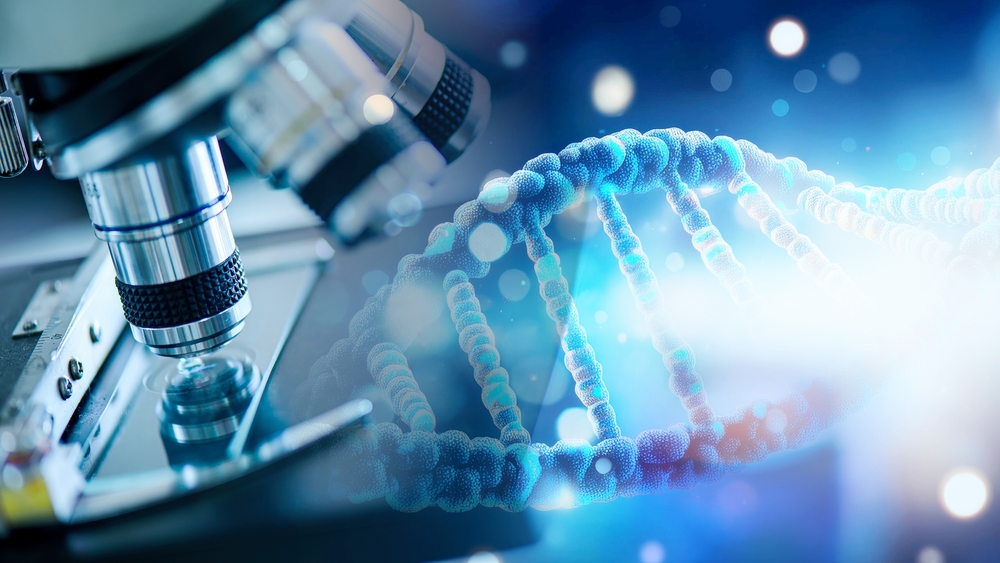
Last Updated:
September 18th, 2025
“Can addiction be passed down through our DNA?”
It’s a question that’s shifting how we think about treatment and recovery. While environment and behaviour still matter, new research suggests our genes may play a bigger role than we ever imagined.
We break down what the science says, what it could mean for the future of recovery and how understanding your personal risk may shape the kind of support you need. This insight could be the first step to getting help if you’re struggling.
How are addictions formed?
Before we explore the world of DNA and addiction, it’s important to understand how addiction typically develops.
For decades, researchers have often understood addiction in one of two ways. Some see it as a health condition where the person gradually loses control, with drug use becoming compulsive and difficult to stop.
Others believe it’s a matter of choice, where the person continues using despite the consequences. These views have shaped public thinking for decades, but neither fully explains the complexity of how addiction develops or why some people are more vulnerable than others.
From a science point of view, we know that repeated exposure to a substance can gradually rewire the brain’s reward system, making it harder to resist cravings and easier to fall into routine use.
People often begin using substances out of curiosity, peer influence, or to cope with overwhelming emotions. What starts as a way to take the edge off (a drink after work, a pill to ease anxiety) can become a habit that feels impossible to break. Over time, the brain begins to associate that substance with relief, comfort or escape, reinforcing the cycle.
Addiction can form for many different reasons, including:
- Childhood trauma or neglect: early emotional wounds can make people more vulnerable to seeking out numbing behaviours.
- Ongoing mental health issues: anxiety, depression and PTSD often go hand-in-hand with substance use.
- Chronic stress or burnout: turning to substances as a coping tool for pressure or exhaustion.
- Major life transitions: events like divorce, bereavement or job loss can trigger a reliance on substances.
- Normalised substance use in the environment: growing up or living around frequent use can make it feel acceptable.
- Financial instability: poverty and uncertainty can add daily strain, increasing the urge to escape.
These factors have long shaped our understanding of addiction. However, emerging research suggests there may be deeper biological roots to consider.
Is addiction written in our DNA?
A landmark study published in Nature Mental Health has revealed that addiction may be influenced by something far deeper than habit or environment: our genes. By analysing the DNA of over one million individuals, researchers identified strong genetic links across different substance use disorders.
Notably, they found 19 genetic variations linked to a general addiction risk, regardless of whether a person was addicted to:
- Alcohol
- Nicotine
- Opioids
- Cannabis
These findings suggest that some people may be biologically more likely to develop an addiction, regardless of which substance they encounter. This doesn’t mean addiction is inevitable, but it may help explain why some people struggle more than others when faced with the same risk factors.
The dopamine connection
The dopamine system was central to the study’s findings. Often referred to as the brain’s reward circuit, dopamine plays a major role in motivation, pleasure and reinforcement. Researchers found that the strongest addiction-related genetic signals were linked to how dopamine signalling is regulated, not the dopamine itself.
This is an important distinction. It suggests that addiction risk may lie in how effectively the brain controls and responds to dopamine stimulation rather than how much dopamine is produced. In practice, a person with altered regulation may experience more intense or unpredictable reactions to rewarding stimuli, which can make substances harder to resist and recovery more complex.
How the environment interacts with genetics
Even with a genetic predisposition, the environment still plays a massive role in whether someone develops an addiction. Think of it like a loaded gun. The genes may load it, but the environment pulls the trigger.
For example:
- Someone with a genetic predisposition may never become addicted if they grow up in a supportive environment, without exposure to drugs or alcohol.
- Meanwhile, someone without the same genetic risk may still develop an addiction if they’re exposed to ongoing trauma or substance use during formative years.
Early exposure, high stress, lack of emotional support or using substances to cope with undiagnosed mental health issues can push someone toward addiction, regardless of their DNA. This interaction between genes and environment highlights why prevention and early intervention are so important.
Genetic patterns and health
Perhaps one of the most eye-opening aspects of the study was the discovery that these addiction-linked genetic patterns are also tied to other conditions, such as:
- Depression
- Suicidal ideation
- Chronic pain
- Heart disease
- Respiratory issues
This overlap supports something already understood in the addiction recovery field: people entering treatment often face more than just addiction. Many have co-occurring mental health conditions or physical health conditions that can contribute to mental health issues, whether diagnosed or not.
Understanding this genetic link could be crucial in the early stages of treatment. If someone is found to have high genetic risk markers for addiction, this could prompt screening for mental health concerns.
For instance, someone with underlying anxiety may respond better to dialectical behaviour therapy (DBT), while others might need trauma-focused approaches. Getting it right from the start could mean the difference between relapse and long-term recovery.
Could these findings influence addiction prevention?
While much of the focus has been on treatment, the potential for early prevention is just as promising. Imagine a future where young people, especially those with a family history of addiction, could take part in early screening that helps identify risk levels and builds personalised prevention strategies.
This wouldn’t mean they’re destined to develop an addiction but it might influence decisions around alcohol or drug exposure. Parents, teachers and medical professionals could use this information to offer stronger support systems early on.
For example, children found to carry certain genetic markers could benefit from:
- Emotional regulation training
- Long-term mentoring schemes
- Careful monitoring of prescriptions and pain relief during adolescence
This approach arms people with the knowledge and tools that can help them make more informed choices.
What this could mean for the future of addiction recovery
While we’re still in the early stages, the promise of personalised addiction treatment is on the horizon. With clearer insight into how genetic patterns influence addiction and how those patterns tie into mental and physical health, clinicians could one-day tailor treatment plans based on a person’s unique biological makeup.
This might involve:
- Identifying people at higher risk before addiction takes hold
- Recommending specific therapies based on how someone’s brain responds to stress, reward and impulse control
These findings also support the growing shift toward integrated care, where addiction, mental health and physical health are treated as interconnected rather than separate problems.
Although we can’t predict the next step with certainty, this research has laid a strong foundation. The future of addiction recovery looks promising. It brings hope not only for better treatment outcomes but also for supporting people earlier in life.
How can UKAT help with addiction recovery?
At UKAT, we believe no two recoveries are the same. That’s why our treatment approach is compassionate and grounded in science.
Whether you need help with alcohol or illicit drug addiction, our team will take time to assess your full health picture, including your mental well-being.
We offer medically assisted detox (where appropriate), followed by a mix of evidence-based therapies like cognitive behavioural therapy (CBT), dialectical behaviour therapy (DBT), one-to-one counselling and group therapy.
For those with co-occurring mental health conditions, our dual-diagnosis pathways ensure tailored support. With multiple facilities across the UK and ongoing aftercare services, we’re here to help you or a loved one take the first step towards long-lasting recovery.
(Click here to see works cited)
- Henden E, Melberg HO, Røgeberg OJ. Addiction: choice or compulsion? Front Psychiatry. 2013 Aug 7;4:77. doi: 10.3389/fpsyt.2013.00077. PMID: 23966955; PMCID: PMC3736117.
- “Neuroscience and Addiction: Unraveling the Brain’s Reward System.” Neuroscience and Addiction: Unraveling the Brain’s Reward System | Penn LPS Online, 5 Feb. 2025, lpsonline.sas.upenn.edu/features/neuroscience-and-addiction-unraveling-brains-reward-system.
- NIDA. 2023, March 22. New NIH study reveals shared genetic markers underlying substance use disorders. Retrieved from https://nida.nih.gov/news-events/news-releases/2023/03/new-nih-study-reveals-shared-genetic-markers-underlying-substance-use-disorders on 2025, March 19





